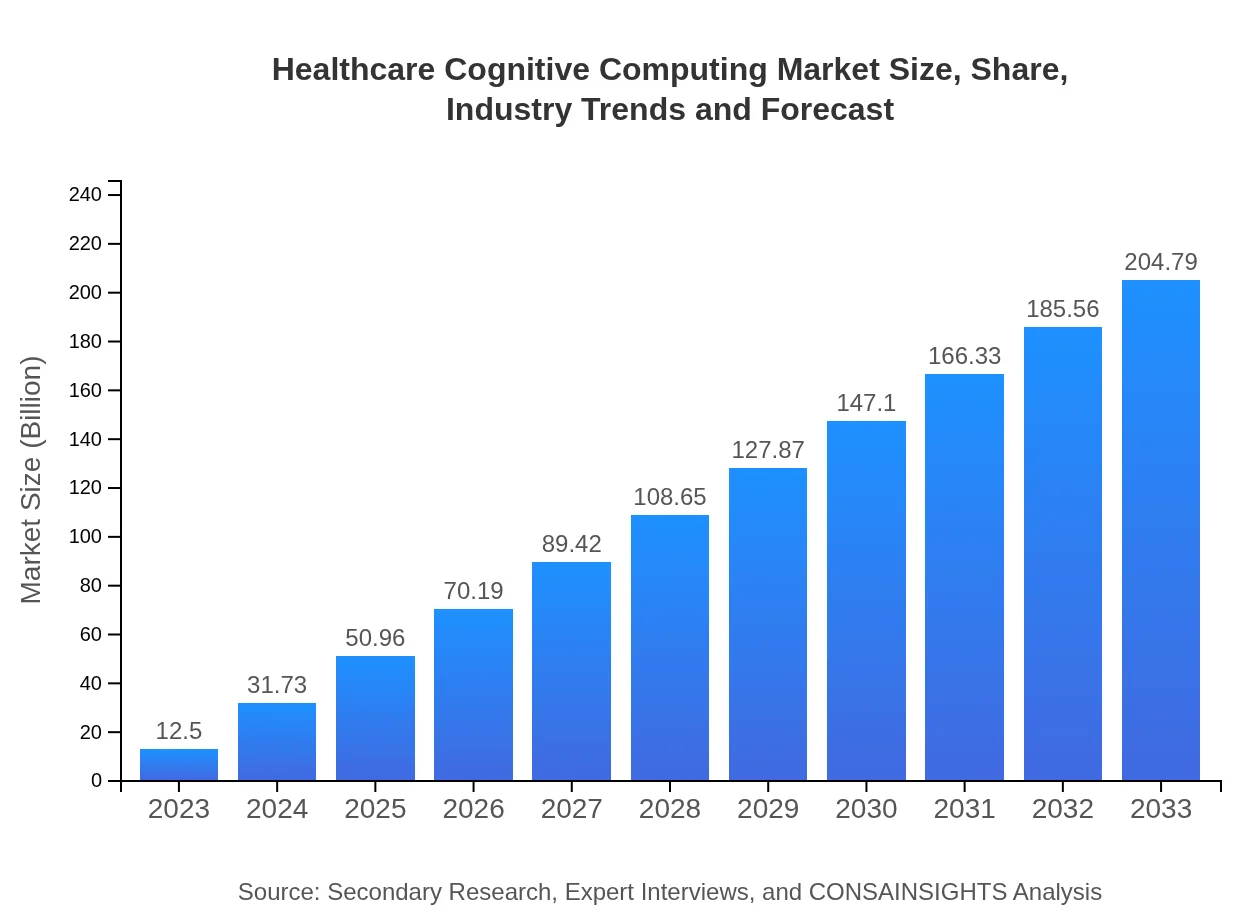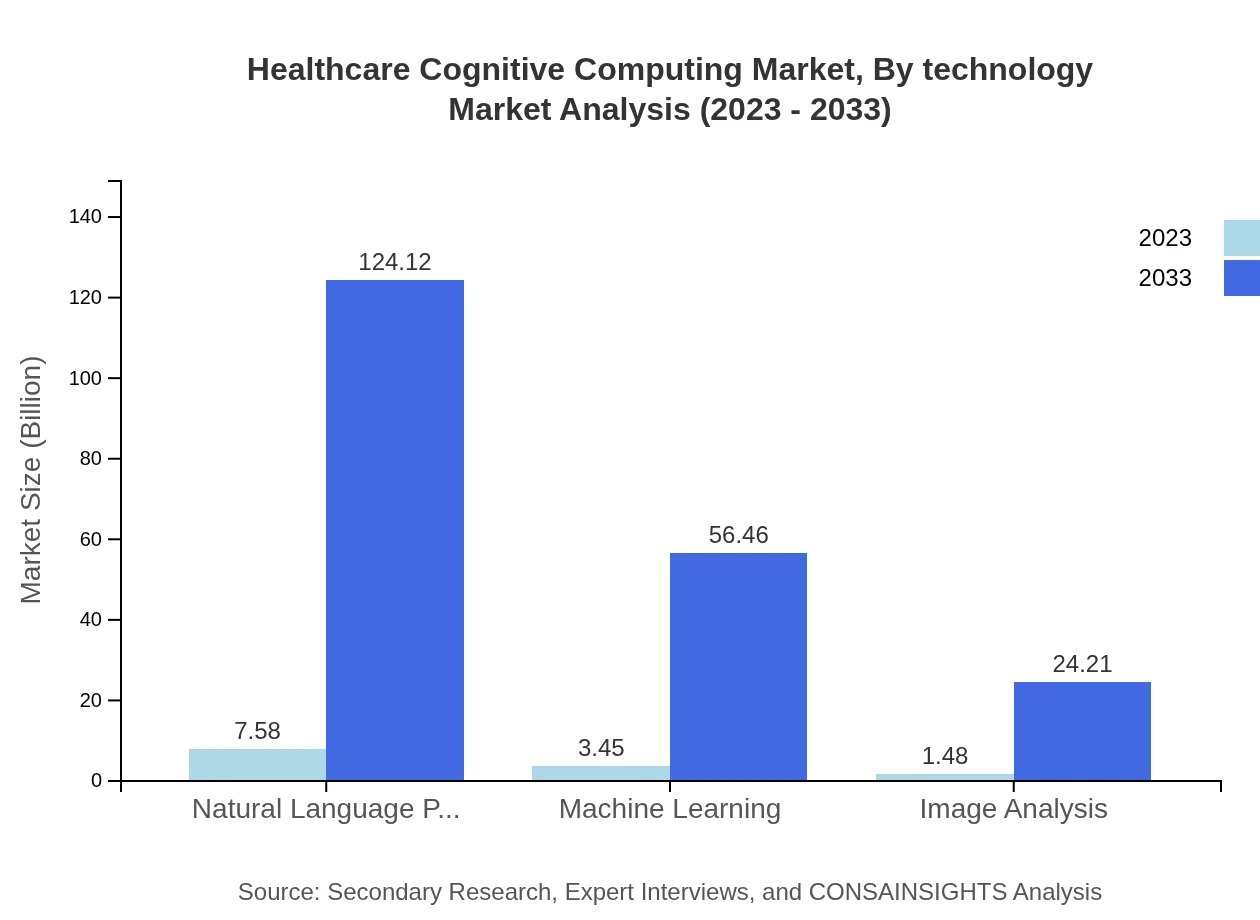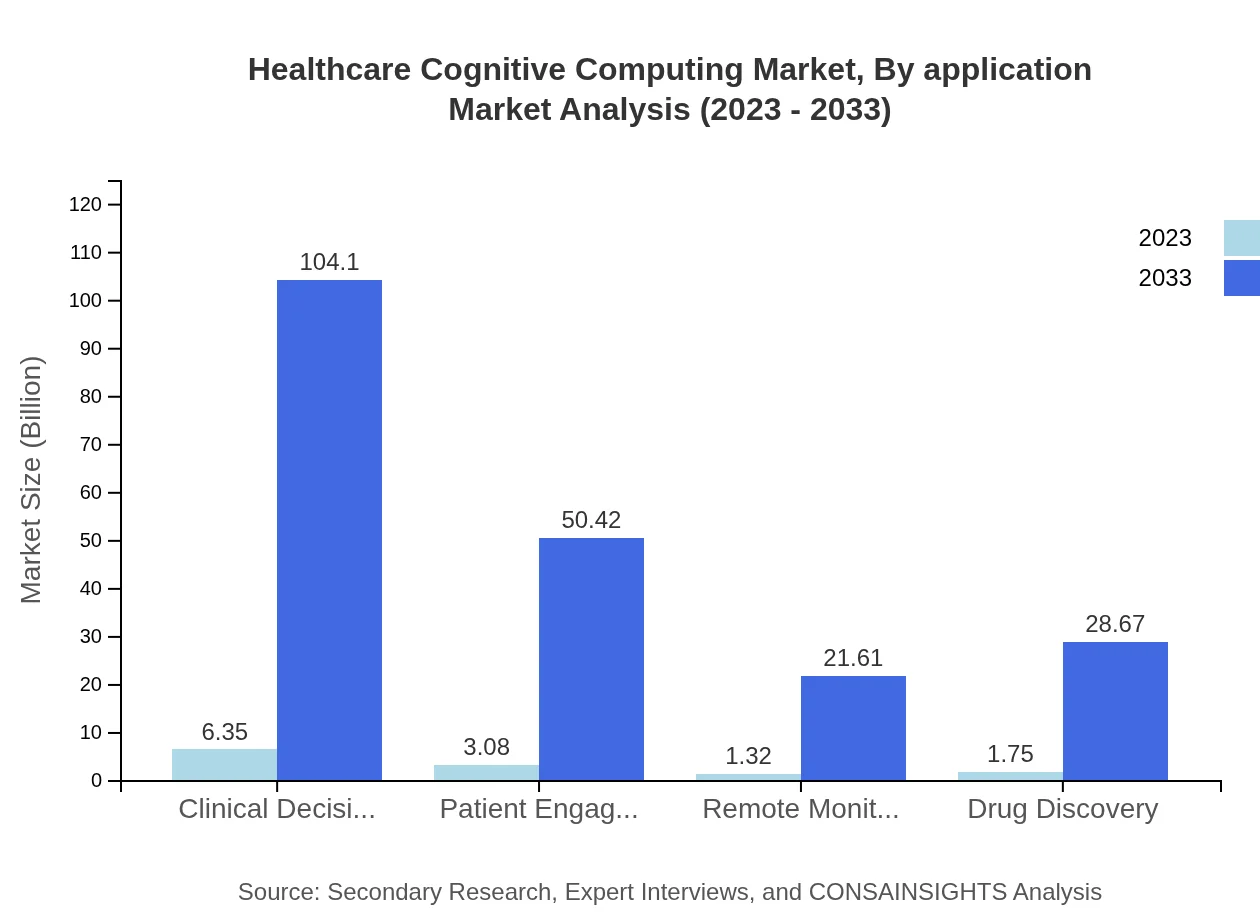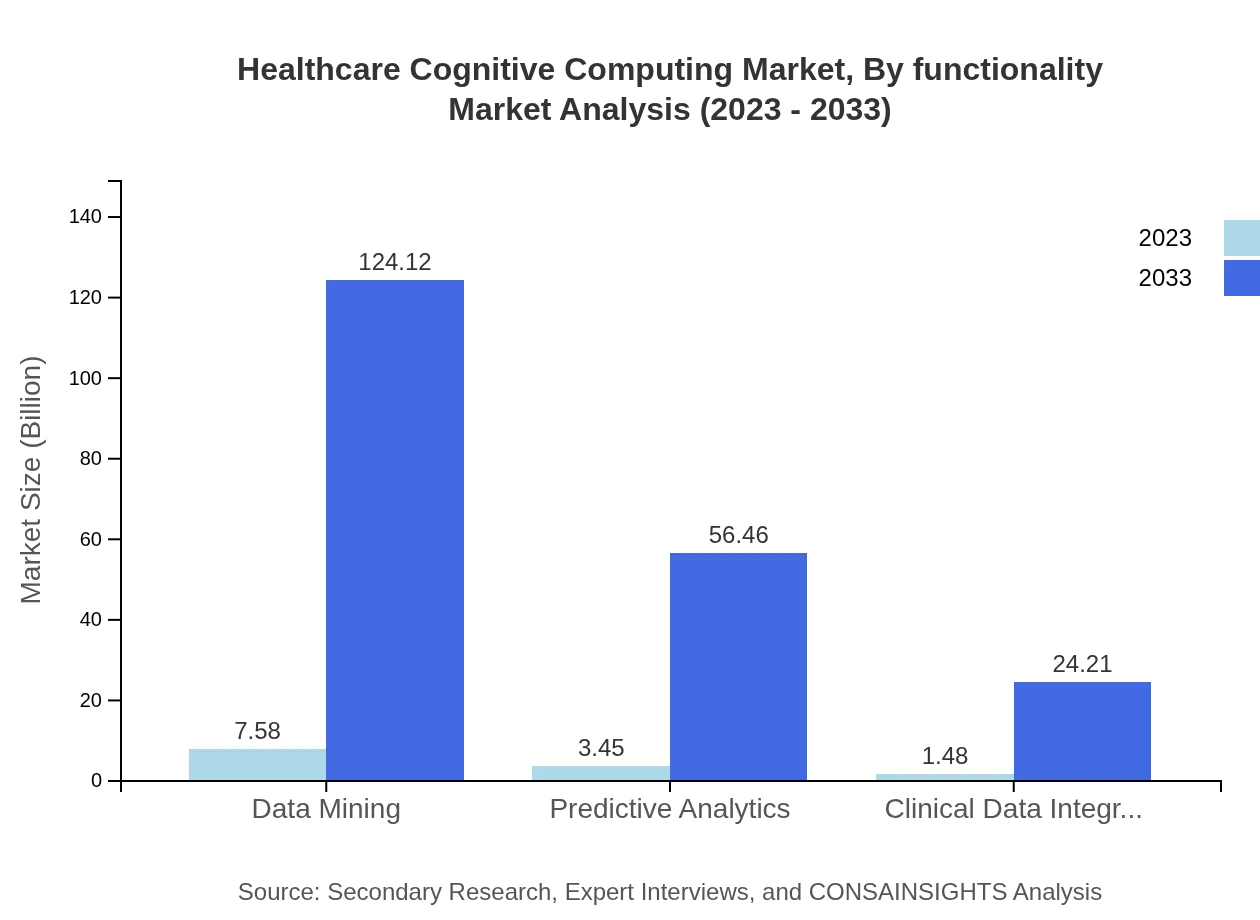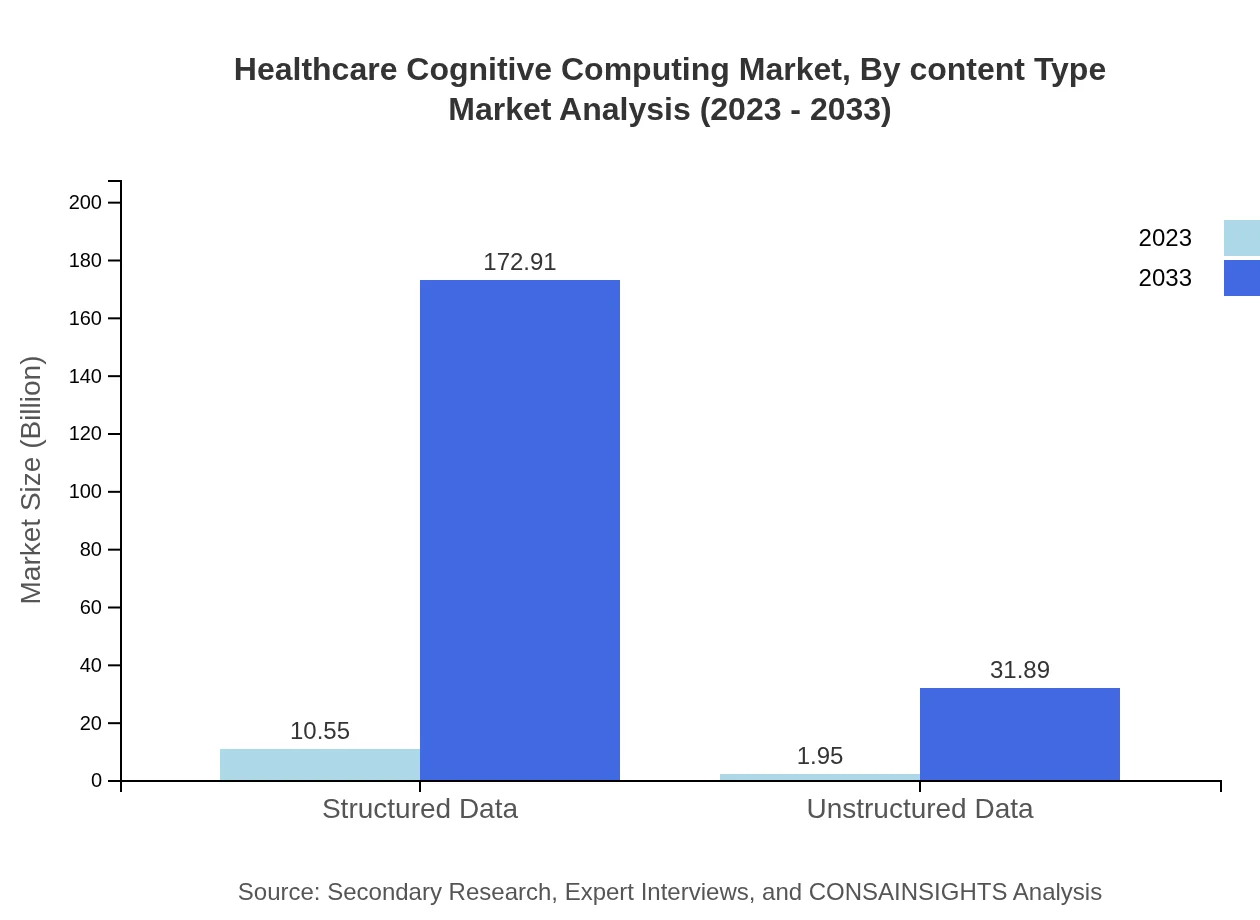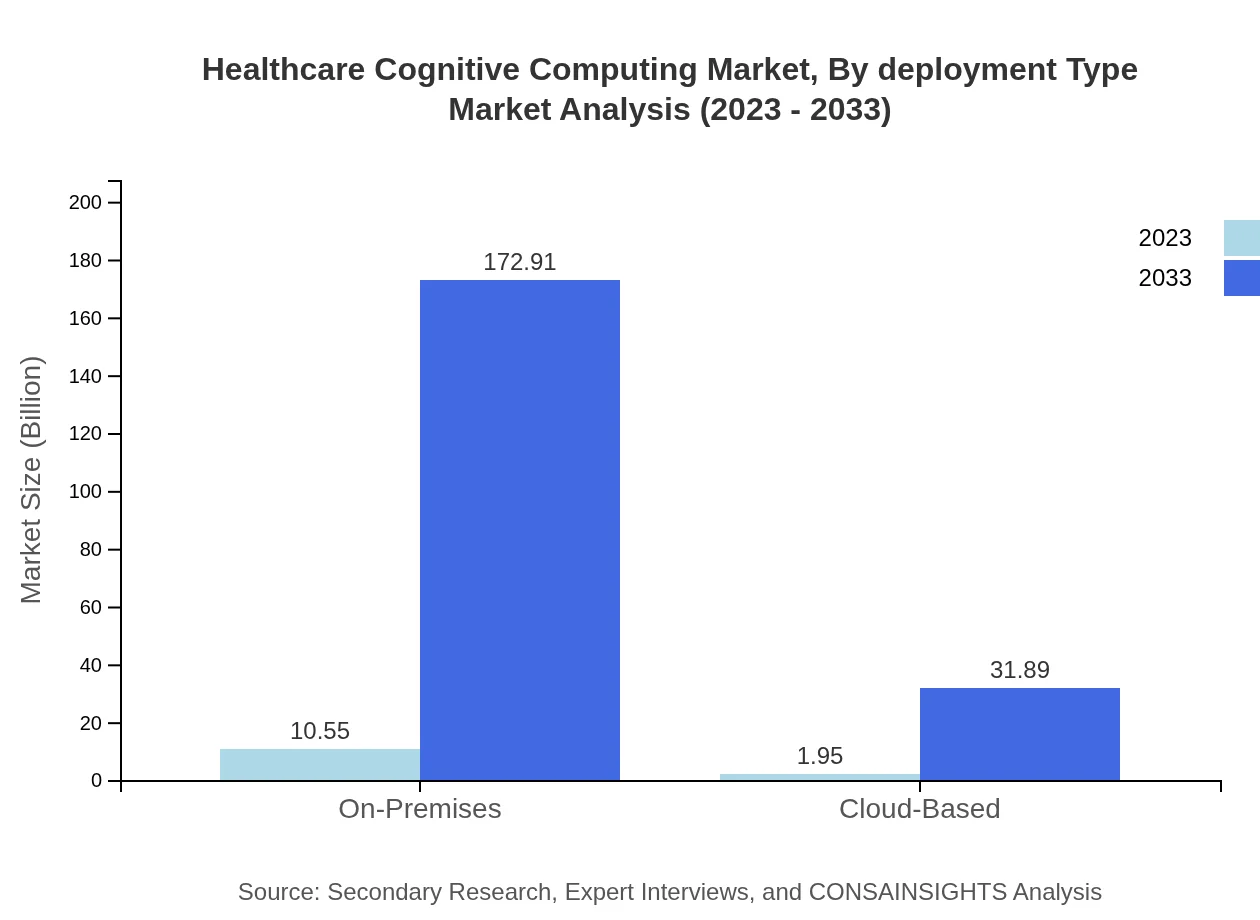Healthcare Cognitive Computing Market Report
Published Date: 31 January 2026 | Report Code: healthcare-cognitive-computing
Healthcare Cognitive Computing Market Size, Share, Industry Trends and Forecast to 2033
This report provides a comprehensive analysis of the Healthcare Cognitive Computing market, detailing current trends, market size, segmentation, and future forecasts from 2023 to 2033, enabling stakeholders to make informed decisions based on robust data and insights.
| Metric | Value |
|---|---|
| Study Period | 2023 - 2033 |
| 2023 Market Size | $12.50 Billion |
| CAGR (2023-2033) | 30% |
| 2033 Market Size | $204.79 Billion |
| Top Companies | IBM Watson Health, Google Health, Microsoft Azure Healthcare, CureMetrix, Nuance Communications |
| Last Modified Date | 31 January 2026 |
Healthcare Cognitive Computing Market Overview
Customize Healthcare Cognitive Computing Market Report market research report
- ✔ Get in-depth analysis of Healthcare Cognitive Computing market size, growth, and forecasts.
- ✔ Understand Healthcare Cognitive Computing's regional dynamics and industry-specific trends.
- ✔ Identify potential applications, end-user demand, and growth segments in Healthcare Cognitive Computing
What is the Market Size & CAGR of Healthcare Cognitive Computing market in 2023?
Healthcare Cognitive Computing Industry Analysis
Healthcare Cognitive Computing Market Segmentation and Scope
Tell us your focus area and get a customized research report.
Healthcare Cognitive Computing Market Analysis Report by Region
Europe Healthcare Cognitive Computing Market Report:
The European market for Healthcare Cognitive Computing is projected to expand from $3.33 billion in 2023 to $54.64 billion by 2033, supported by robust government policies promoting AI and digital health, alongside increasing adoption by hospitals and clinics.Asia Pacific Healthcare Cognitive Computing Market Report:
In the Asia Pacific region, the Healthcare Cognitive Computing market is expected to grow from $2.58 billion in 2023 to $42.33 billion by 2033. Contributing factors include the increasing investment in healthcare technology and the rising prevalence of chronic diseases, driving demand for advanced analytics and personalized care.North America Healthcare Cognitive Computing Market Report:
In North America, the market is set to rise from $4.20 billion in 2023 to $68.81 billion in 2033. The region's growth is attributed to high healthcare expenditure, technological advancements, and a strong emphasis on research and development initiatives.South America Healthcare Cognitive Computing Market Report:
The South American market is projected to escalate from $1.20 billion in 2023 to $19.68 billion by 2033. Growth is primarily driven by improvements in healthcare infrastructure and increasing awareness of cognitive computing benefits, with key players expanding their presence in this region.Middle East & Africa Healthcare Cognitive Computing Market Report:
The Middle East and Africa market is expected to grow from $1.18 billion in 2023 to $19.33 billion in 2033. Enhanced focus on healthcare transformation and digital initiatives in emerging markets in the region play a pivotal role in driving market growth.Tell us your focus area and get a customized research report.
Healthcare Cognitive Computing Market Analysis By Technology
Natural Language Processing (NLP) holds a significant share in cognitive solutions, growing from $7.58 billion in 2023 to $124.12 billion by 2033, driven by its applications in clinical data analysis and patient interaction. Machine Learning displays a promising trend, with projections from $3.45 billion to $56.46 billion in the same timeframe, as it increasingly aids in predictive analytics and operational efficiencies. Image Analysis is set to progress from $1.48 billion in 2023 to $24.21 billion by 2033, enhancing diagnostic accuracy. Additionally, Clinical Decision Support expands from $6.35 billion to $104.10 billion, showcasing its growing importance in patient management.
Healthcare Cognitive Computing Market Analysis By Application
Clinical Decision Support systems are becoming vital, foreseen to escalate from $6.35 billion in 2023 to $104.10 billion by 2033. Patient Engagement solutions will witness considerable growth from $3.08 billion to $50.42 billion as technology facilitates better communication between patients and providers. Furthermore, Remote Monitoring applications will grow from $1.32 billion in 2023 to $21.61 billion, enhancing patient oversight in real time, essential for chronic disease management.
Healthcare Cognitive Computing Market Analysis By Functionality
Functionality segments include patient management, predictive analytics, and operational efficiency improvements. Predictive Analytics alone is anticipated to grow from $3.45 billion to $56.46 billion from 2023 to 2033, providing healthcare professionals with actionable insights to enhance care quality. The emphasis on integrated patient management systems is expected to rise, catalyzing investments into cognitive tools that create a comprehensive view of patient data.
Healthcare Cognitive Computing Market Analysis By Content Type
The distinction between structured and unstructured data reflects the industry's need for data efficiency. Structured Data is projected to surge from $10.55 billion in 2023 to $172.91 billion by 2033, indicating its crucial role in precise data analysis and reporting. Unstructured Data, growing from $1.95 billion to $31.89 billion, highlights the shift in strategies to manage vast amounts of clinical information effectively.
Healthcare Cognitive Computing Market Analysis By Deployment Type
On-Premises solutions are currently dominant, expected to remain significant, growing from $10.55 billion to $172.91 billion. However, Cloud-Based deployments are catching up, with forecasts rising from $1.95 billion to $31.89 billion, driven by the need for scalability and flexibility in accessing cognitive computing resources.
Healthcare Cognitive Computing Market Trends and Future Forecast
Tell us your focus area and get a customized research report.
Global Market Leaders and Top Companies in Healthcare Cognitive Computing Industry
IBM Watson Health:
A leading player in AI and cognitive computing, IBM Watson Health focuses on leveraging data to improve health outcomes and enhance clinical decision-making processes with its analytics and AI solutions.Google Health:
Google Health integrates AI-driven solutions to enhance healthcare systems, supporting diagnostic accuracy, customer engagement, and data analytics for stakeholders across the healthcare ecosystem.Microsoft Azure Healthcare:
Microsoft leverages its cloud computing platform to provide healthcare organizations with powerful data analytics and AI capabilities, streamlining operations and enriching patient care.CureMetrix:
CureMetrix specializes in AI-driven mammography solutions, utilizing cognitive computing to improve diagnostic precision and empower radiologists with advanced tools.Nuance Communications:
Nuance focuses on AI technologies that streamline clinical documentation and enhance patient engagement, driving efficiency in healthcare delivery while improving patient experiences.We're grateful to work with incredible clients.









FAQs
What is the market size of healthcare Cognitive Computing?
The healthcare cognitive computing market size was valued at $12.5 billion in 2023 and is expected to grow at a CAGR of 30% to reach significantly larger figures by 2033, reflecting robust demand and innovation in healthcare technology.
What are the key market players or companies in this healthcare Cognitive Computing industry?
Key players in the healthcare cognitive computing market include IBM, Google, Microsoft, Philips, and Siemens, among others. Their innovations in AI, machine learning, and cloud technologies significantly advance healthcare decision-making and patient outcomes.
What are the primary factors driving the growth in the healthcare Cognitive Computing industry?
Primary factors driving growth include increasing data volume in healthcare, demand for improved patient outcomes, advancements in AI technologies, and the need for cost reduction in healthcare delivery, promoting investments in cognitive computing solutions.
Which region is the fastest Growing in the healthcare Cognitive Computing?
The fastest-growing region in the healthcare cognitive computing market is North America, projected to expand from $4.20 billion in 2023 to $68.81 billion by 2033, driven by extensive technology adoption and healthcare investment.
Does ConsaInsights provide customized market report data for the healthcare Cognitive Computing industry?
Yes, ConsaInsights offers customized market reports tailored to specific client needs within the healthcare cognitive computing industry. These reports can focus on various segments, trends, and geographic markets to provide in-depth insights.
What deliverables can I expect from this healthcare Cognitive Computing market research project?
Deliverables include comprehensive market analysis, competitive landscape assessment, segment breakdowns, forecasts, and actionable insights tailored to strategic decision-making in the healthcare cognitive computing sector.
What are the market trends of healthcare Cognitive Computing?
Current trends in healthcare cognitive computing include the rise of telemedicine, integration of AI in diagnostic tools, utilization of data analytics for personalized medicine, and increasing focus on patient engagement technologies.

